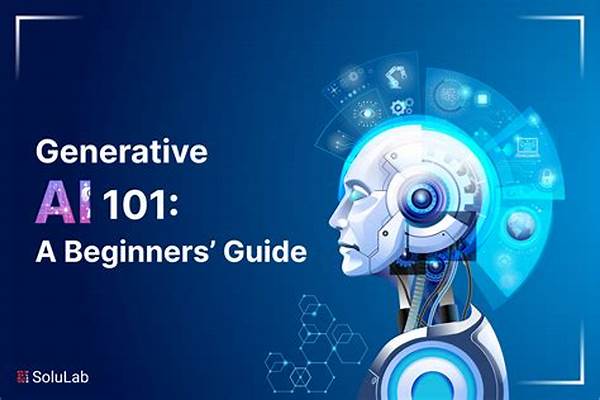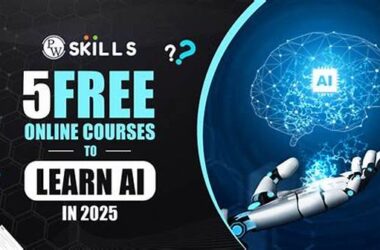Embarking on a journey into the world of Artificial Intelligence (AI) might seem like diving headfirst into a complex, vast ocean. But fear not! The purpose of this article is to break down the barriers for beginners and demystify AI, making it as accessible and engaging as possible. “AI for beginners” isn’t just a guide; it’s your friendly first step into a realm that’s reshaping industries, economies, and everyday life. Whether you’re a marketer eager to harness AI’s power, a designer curious about how AI can aid creativity, or simply an enthusiast, this guide will bring this advanced technology into your sphere in a fun yet informative way.
Read More : Beginner Ai Book
AI is everywhere: it’s in your smartphone, your smart home devices, and even in your online shopping carts. The fascination with AI for beginners isn’t just about understanding algorithms, but discovering how these algorithms impact our lives. Picture AI as your digital concierge, streamlining operations, improving efficiency, and personalizing user experiences. It bridges the gap between human inefficiency and machine proficiency. In this age of tech evolution, comprehending AI basics is not just an option—it’s becoming essential.
The Rise of AI in Everyday Life
“AI for beginners” promises to transform how we view capabilities and limitations. In the current digital transformation, AI’s impact on mundane activities is profound. For many, the journey starts with curiosity about AI’s role in predictive text or voice recognition software. By mastering basic AI applications, you not only enhance personal productivity but also glimpse the future of smart technologies.—
The Foundation of AI for Beginners
To fully appreciate AI, one must understand its roots. AI, essentially a branch of computer science, aims to create machines that simulate human intelligence. Tasks once thought impossible for machines—from visual perception to language translation—are now commonplace, thanks to AI. For beginners, grasping these concepts requires focusing on AI’s logical and mathematical underpinnings: machine learning, neural networks, and deep learning.
Building Blocks of AI
Understanding these core components provides a solid foundation for beginners, opening doors to deeper exploration.
—
Making AI Accessible for Beginners
As intimidating as AI sounds, the journey for beginners is far from treacherous. Numerous online resources, courses, and communities make learning AI not only feasible but fun. From engaging tutorials to interactive learning platforms, beginners can immerse themselves hands-on rather than merely theoretical. “AI for beginners” thus becomes less about wrestling with complex code and more about innovation and creativity.
Getting Started
1. Free Online Courses: Platforms like Coursera and edX offer excellent introductory courses.
2. YouTube Tutorials: A wealth of video content provides visual guidance.
3. AI Communities: Engage with forums and groups like Reddit or specialized Discord channels.
4. Hackathons: Participate in beginner-friendly AI competitions.
5. AI Books: Popular books like “Artificial Intelligence: A Guide to Intelligent Systems” provide comprehensive insights.
—
Exploring AI Applications
What AI Can Do for You
Consider AI as a digital Swiss Army knife with tools tailored for varied tasks. For beginners, the application of AI spans creative, strategic, and operational functions. From automating repetitive tasks to curating personalized user experiences, AI’s capabilities are vast and customizable.
Versatility for Beginners
Delving into AI is an adventure in versatility. Beginners can start small, perhaps exploring chatbots for customer service or predictive analytics to gauge consumer behavior. In marketing, AI’s real-time insights can revolutionize campaign strategies, allowing for precision targeting and adaptability in dynamic markets.
—
Breaking New Ground with AI Innovations
With “AI for beginners”, you’re not just learning about technology—you’re engaging in a transformative era filled with potential and promise. Innovations are accelerating at a breathtaking pace, and by diving into AI, beginners aren’t mere spectators but active participants in sculpting a new digital landscape. As you step through this gateway, equipped with knowledge and curiosity, embrace the endless possibilities AI offers.
Conclusion
To wrap it up, AI is not an aloof, inaccessible concept reserved for tech aficionados and big corporations. It’s versatile, exciting, and crucial even for beginners. As we step forward, understanding AI’s fundamental principles empowers us to innovate and transform our personal and professional lives. Embrace ‘AI for beginners’, and welcome to the tech revolution!



